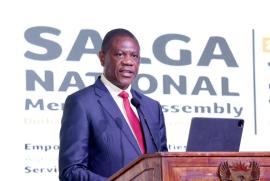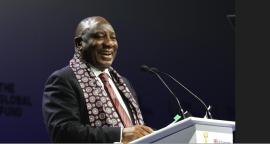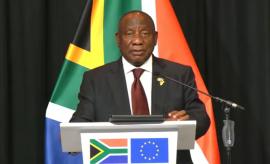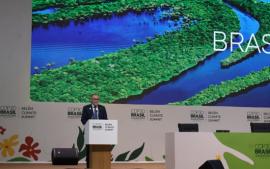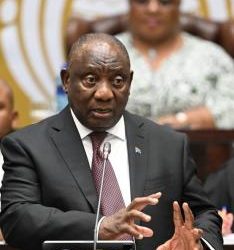German Vice-Chancellor Lars Klingbeil has announced that Germany will provide an initial contribution of €10 million towards the Group of Twenty (G20) Compact for Africa initiative, which promotes private investment in Africa.
“This is not only a strategic investment, it is one that can boost the growth, create business opportunities and reduce pressure on public budgets in important Member States,” Klingbeil said on Thursday in Durban during the G20 Finance Track Meeting.
Established under the German G20 Presidency in 2017, the initiative’s primary objective is to increase attractiveness of private investment through substantial improvements of the macro, business and financing frameworks.
Under the G20 Finance Track, the Compact for Africa is governed through the G20 Africa Advisory Group (AAG), co-chaired by Germany and South Africa.
The African Development Bank Group, the International Monetary Fund (IMF), and the World Bank Group coordinate the initiative.
“To help these partners, with the support of the Compact with Africa, Germany will provide an initial contribution of €10 million to the World Bank’s Trust Fund this year.
“We are convinced that this is a worthwhile investment and we will be pleased to see other G20 members to join us, therefore, we call on all G20 partners to consider making their own contribution to the World Bank Trust Fund to help ensure the Compact’s long term success.
“Only through our joint efforts we can truly unlock the potential of the Compact with Africa and make a lasting impact for the benefit of our African partners and the global community,” Germany’s Vice-Chancellor said.
According to Klingbeil, Compact members have higher levels of foreign direct investments.
“It is important to recognise the initiative’s full potential impact is still emerging, partly due to unexpected external challenges such as the COVID-19 pandemic and global uncertainties.
“This highlights the necessities for continued political and financial commitment to unlock the Compact’s full potential for sustainable and inclusive growth across Africa,” he said.
The German Vice-Chancellor emphasised that Germany’s new government wants to deepen its engagement with South African partners.
“We will continue to provide strong support with the Compact but more generally we also want to engage in new thinking about development partnerships.
“The German government has committed itself to establish a new North-South Commission to set up an international forum where experts from politics, civil society, business and research can meet on a regular basis to search for new and efficient solutions. I envision the independent experts from relevant areas from all parts of the world coming together on a regular basis,” he said.
The new German government agreed to establish a new North-South Commission to jointly suggest new North-South policies for a multipolar world.
Klingbeil stressed the importance of the Global North and Global South working together on equal footing while also highlighting the need for equitable partnerships and mutual respect between developed and developing nations.
“It’s important that we don’t have a platform where the North is telling the South what to do. We have to come together on the same level to find common answers to address the challenges we are facing in the world.
“At the same time, we will continue to make use of the existing instruments of the G20 Compact with Africa is one of them, it’s dynamic and results driven initiative that demonstrates the power of partnerships and peer to peer learning,” Klingbeil said.
Finance Minister Enoch Godongwana indicated that the Compact for Africa has grown into a dynamic initiative that has mobilised over $191 million dollars in private capital, supported by the development of bankable projects and improved access to services for over 13.5 million people.
“It has also fostered a peer learning network among participating countries supported by institutions like the African Centre for Economic Research and provided a structured framework for reform through regular monitoring and technical assistance.
“As we look ahead, the success of the Compact with Africa will depend on our collective commitment. We must ensure that this initiative remains country-owned, reform driven and result orientated,” the Minister said.
Godongwana called on governments, multilateral institutions and the private sector to create enabling conditions for sustainable development and inclusive growth.
“Africa’s development trajectory is at a crossroad, while the continent is rich in opportunity, it continues to face significant challenges ranging from infrastructure deficit and climate vulnerability to constrained fiscal space and limited access to long term private capital
“In this context, the compact with Africa initiative remains a promising platform for fostering reformed driven investment partnership between African countries and the private sector,” he said.
South Africa assumed the G20 Presidency on 1 December 2024, which runs to 30 November 2025, under the theme: “Solidarity, Equality, and Sustainability”. – SAnews.gov.za



